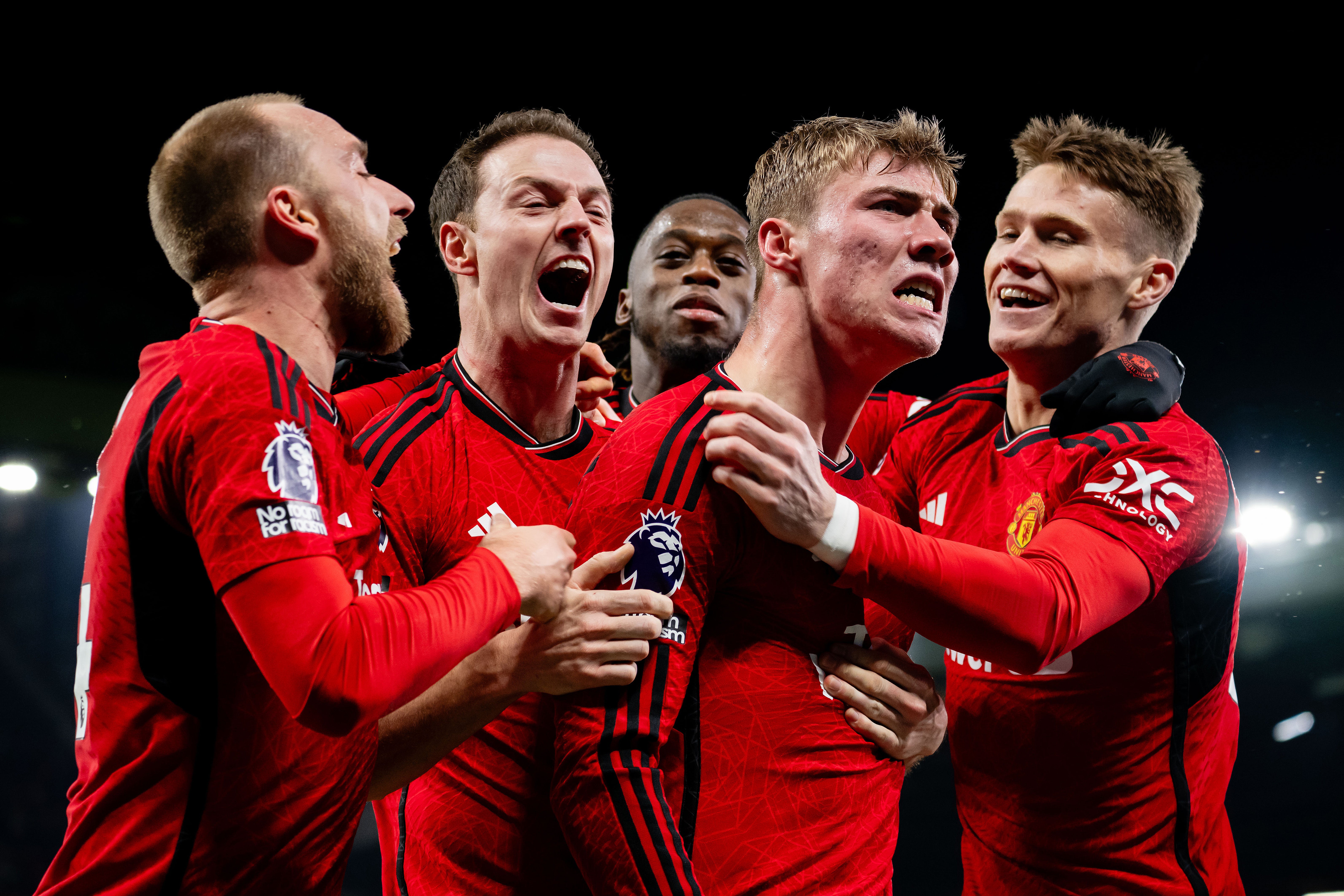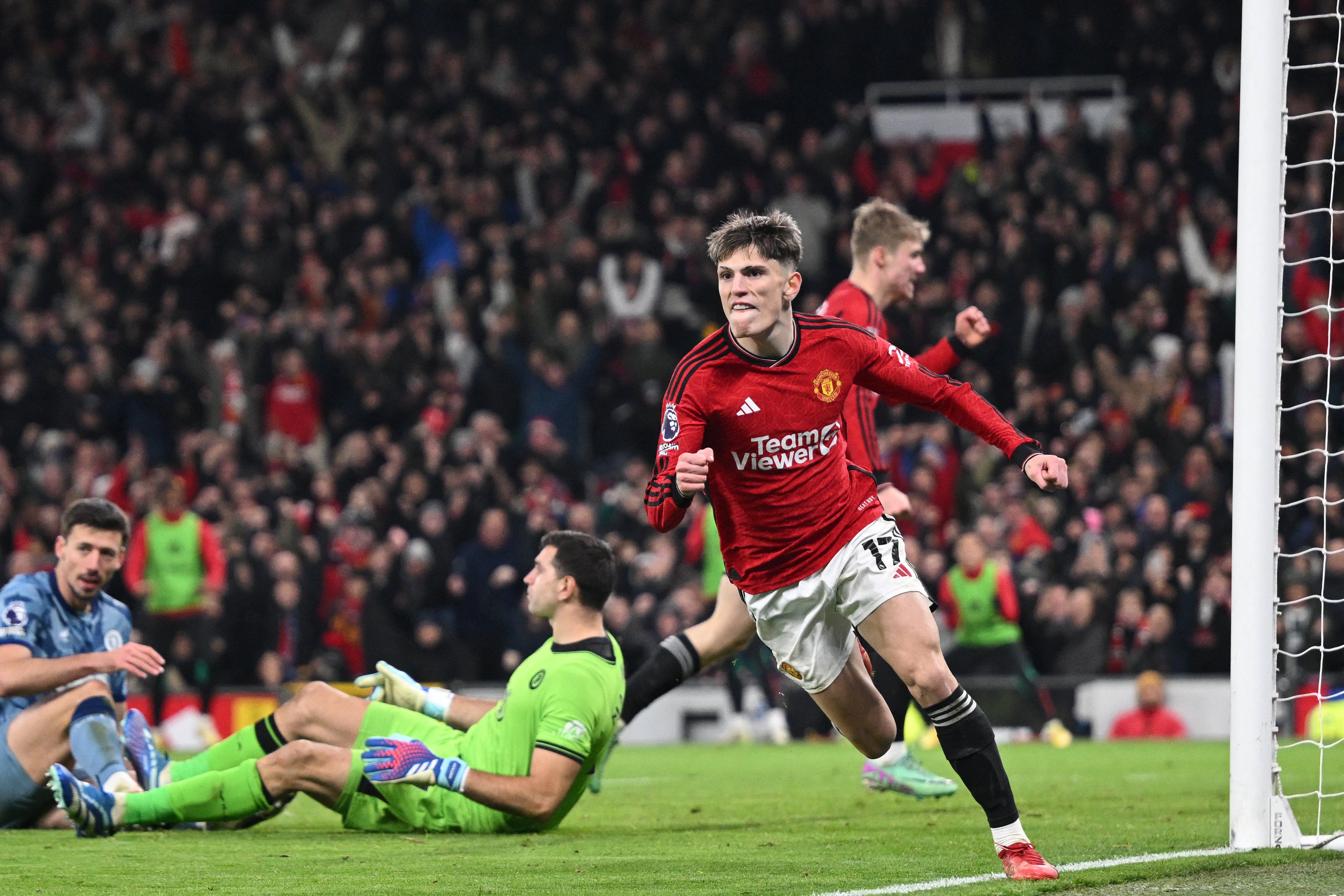Rasmus Hojlund finally ended his drought but Man United must do more for their striker
The best should be yet to come for the Dane after scoring against Aston Villa but not without some help

Your support helps us to tell the story
From reproductive rights to climate change to Big Tech, The Independent is on the ground when the story is developing. Whether it's investigating the financials of Elon Musk's pro-Trump PAC or producing our latest documentary, 'The A Word', which shines a light on the American women fighting for reproductive rights, we know how important it is to parse out the facts from the messaging.
At such a critical moment in US history, we need reporters on the ground. Your donation allows us to keep sending journalists to speak to both sides of the story.
The Independent is trusted by Americans across the entire political spectrum. And unlike many other quality news outlets, we choose not to lock Americans out of our reporting and analysis with paywalls. We believe quality journalism should be available to everyone, paid for by those who can afford it.
Your support makes all the difference.It only took 15 appearances. Or some 1,027 minutes of football. Or the 114 days since his debut. Or 19 shots. Whichever way it is assessed, it was a long time: given the price tag, the expectation, the glimpses of talent, the club he has joined, their plight. Rasmus Hojlund has a Premier League goal for Manchester United. Which, when they paid £72m for him, was expected to arrive quite some time before Boxing Day.
When it came, a boyhood United fan turned youthful United centre-forward pronounced: “I’m the happiest man alive right now. It’s been a while.” Given the depths United have plumbed in the meantime, it may be an exaggeration to say it was worth the wait. And yet, when his goal finally came, it was at an opportune moment: to complete a comeback against a high-flying Aston Villa team, when a new era at Old Trafford required a springboard, when the manager who signed him, Erik ten Hag, had a greater need of some validation in front of a new force who could determine his future, in Ineos director of sport Sir Dave Brailsford.
As the great Hojlund drought ended, the Dutchman could sense some vindication for his own man-management. Perhaps the Dane’s blank in the Premier League had merely been a statistical quirk but the forward required some convincing of that himself. “I had several talks with him and I pointed out he scored for Denmark a lot and he scored in the Champions League, so that demonstrated ability, so believe in it and it will come,” said Ten Hag. When it did, the instinct was there; so, too, the capacity to seize the moment.
“He will score more,” Ten Hag added. “When strikers don’t score it is always a problem but he has a strong character, he has a big personality and that is what a striker needs and when you keep investing, the goals will come.”
The sense has been that Hojlund does possess the character required: he has had many an awkward outing, games in which he has been starved of service or looked callow, but he has rarely hidden. “Rasmus knows that he is going to have pressure,” said Bruno Fernandes. “He plays for one of the biggest clubs in the world; you get a lot of attention so you need to get used to that.”
Certainly, the scrutiny is different from life at Atalanta, Sturm Graz or FC Copenhagen. It is in part the product of the price, of the sudden rise to prominence. It gave Hojlund a mystique, an intrigue. On England duty, Jude Bellingham and James Maddison asked Marcus Rashford about him. Some 23 games into his United career, he was finally able to exit Old Trafford to the unfamiliar refrain of the Stretford End singing his name.

He had been denied such a celebration before then. He had the misfortune that his five Champions League goals all came in defeats. He was shaping up as the match-winner at home to Galatasaray before United self-destructed.
“On the highest level in the Champions League, he scored five and displayed his ability,” reflected Ten Hag: indeed, it is an indictment of United that they have the joint top scorer in the competition and still contrived to get eliminated from it. “The Premier League is close to the Champions League. So it will come and give him confidence. When strikers have confidence, they will score.”
But service also helps. There were damning statistics about how few passes Antony and Alejandro Garnacho had provided for Hojlund; just six and five apiece by Christmas, and benching the Brazilian for Marcus Rashford helped revive United. Garnacho, who scored twice, came to the defence of the beleaguered attack. “Too many people talk about the strikers in Manchester United and say we never score goals,” argued the Argentinian. “But today you see Rashford with the assist, Rasmus with the goal, so we’re happy.”

And yet, even with Hojlund’s thriller against Villa, there are still 91 players who have had more shots in the Premier League this season. The assist for his goal came, inadvertently, from John McGinn. It was his only attempt on the Villa goal. United still need to supply Hojlund more often, and better.
Many a predecessor has opened his account rather more quickly. Many a previous United attacker has received rather more help. One other got his first Premier League goal to complete a comeback in a 3-2 win against Villa. Some 14 years earlier, it came barely half an hour into Federico Macheda’s time on the pitch for United. The Italian did not cost £72m. Nor did a shooting star have much longevity: he was to only score three more league goals for United.
The demanding Fernandes said he hoped this would not remain the happiest day of the Dane’s life. For Macheda, it was never as good again. For Hojlund, the best should be yet to come.
Join our commenting forum
Join thought-provoking conversations, follow other Independent readers and see their replies
Comments